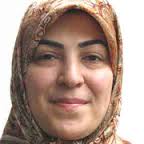13 May Teenagers Who Eat Lots of Fruits & Vegetables May Lower Breast Cancer Risk

Dr. Maryam Farvid
MedicalResearch.com Interview with:
Maryam Farvid, Ph.D.
Visiting Scientist
Department of Global Health and Population
Harvard T.H. Chan School of Public Health
MedicalResearch: What is the background for this study? What are the main findings?
Dr. Farvid: Breast cancer is one of the most frequently diagnosed cancers and is the second leading cause of cancer deaths among women in the United States. While we know many breast cancer risk factors, few of them are easily modified. Further, evidence suggests that exposure to carcinogens and anti-carcinogens in early life may play an important role. According to this study, what women eat as teens or young adults could affect their breast cancer risk in the future. Teenage girls who eat a lot of fruits may have a lower risk of breast cancer later in life. The risk of breast cancer among women who reported the highest amount of dietary fruits during high school, about 2.9 servings of fruit a day, was 25 percent lower, compared with those who had eaten the lowest amount, about 0.5 serving of fruit a day. We also analyzed individual fruit and vegetable intake and risk of breast cancer: greater consumption of apple, banana, and grapes during adolescence, as well as oranges and kale for young adult was significantly associated with a reduced risk.
MedicalResearch: What should readers take away from your report?
Dr. Farvid: Current evidence indicates that higher fruit intake during teenage years may reduce the risk of breast cancer. Higher fruit and vegetable consumption throughout the lifecourse has many health benefits, and our research suggests that earlier life consumption may benefit later breast cancer risk.
MedicalResearch: What recommendations do you have for future research as a result of this study?
Dr. Farvid: This is the first prospective study that shows the inverse association between adolescent fruit consumption and risk of breast cancer in later life. Further study is needed to investigate the underlying biological mechanisms and pathways through which adolescent diet may affect breast cancer risk.
MedicalResearch: Is there anything else you would like to add?
Dr. Farvid: This study underscores the importance of what young girls eat on their future health. Parents could do a great job in providing a plenty of fruits and vegetables at home and encouraging teens to adopt healthy eating habits including an emphasis on diet rich in fruits and vegetables. Furthermore, it is an important message for schools to providing the opportunity for students to consume more fruits and vegetables as part of school meal programs. In addition, benefit of a diet high in fruits is not limited to decreased risk of breast cancer; from other evidence, we know that high fruit intake may help to reduce risks of other chronic disease including diabetes and cardiovascular disease.
Citation:
Note: Content is Not intended as medical advice. Please consult your health care provider regarding your specific medical condition and questions.
More Medical Research Interviews on MedicalResearch.com
[wysija_form id=”5″]
Last Updated on May 13, 2016 by Marie Benz MD FAAD
